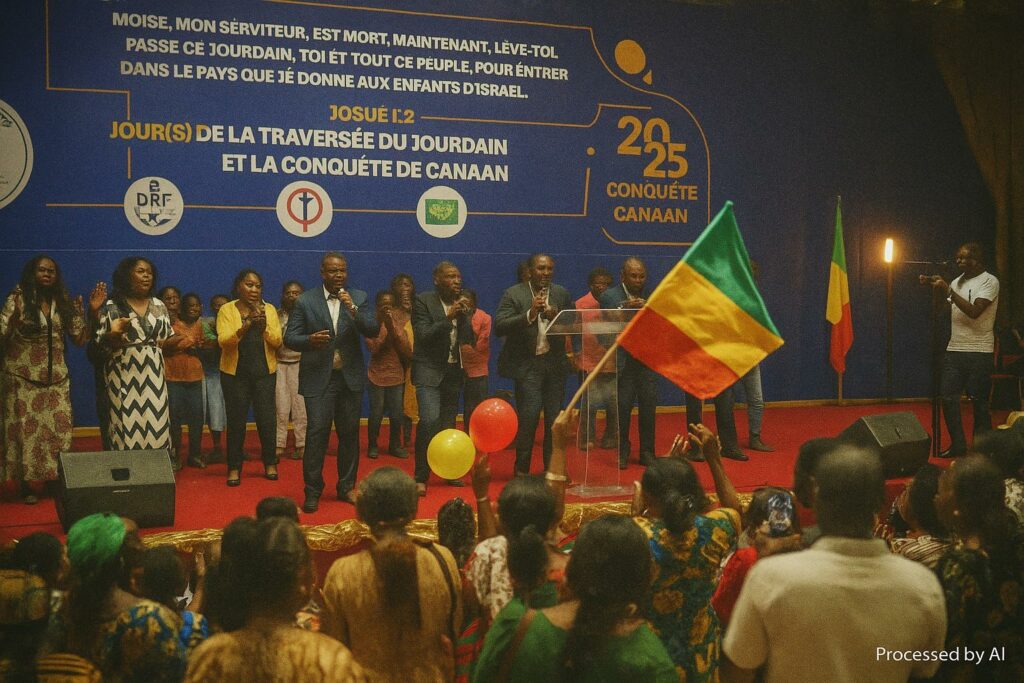A Symbolic Homecoming on the Banks of the Congo
At dawn on 27 July, hymns once again drifted across the Kombo stream as hundreds of congregants converged on the Mont Carmel prayer ground in Brazzaville’s Makélékélé district. The site, sealed in 2021 as part of a wider governmental review of religious gatherings, reopened with ceremonial restraint but palpable fervour. Standing beneath the acacia canopy where the first vigils were reportedly held in 1987, Apostle Bruno Jean Richard Itoua proclaimed, “It was here that lives were transformed; it is here that the journey continues.” His declaration, echoing across a crowd that included Bishop Néhémie Kabeya and Apostle Jean-Baptiste Bafoungissa, framed the moment as both a return and a new departure.
The biblical text selected for the inaugural sermon—Joshua 1:2—was deliberate. In Congolese Pentecostal hermeneutics, the Jordan crossing evokes collective endurance before national promise. For many worshippers, the three-year suspension resembled a wilderness experience, now giving way to what elders described as a ‘Canaan season’ culminating in 2025, the ministry’s next global summit.
Navigating the Regulatory Landscape of Faith
The reopening comes against a backdrop of evolving regulation rather than abrupt liberalisation. In 2019, Congo-Brazzaville counted over 1,800 wp-signup.phped churches, a vibrancy that prompted the Ministry of the Interior and Decentralisation to launch an audit of faith-based organisations (La Semaine Africaine, March 2020). The audit sought to ensure compliance with building codes, noise ordinances and fiscal obligations—criteria under which several sites, including Mont Carmel, were provisionally closed.
Officials familiar with the process insist that the measure was administrative, not punitive. “Our objective was to harmonise public worship with public order,” a senior interior-ministry adviser noted in a telephone interview. “Dialogue with denominational leaders has been constant, and reopening is granted once technical observations are met.” The ministry’s stance aligns with the 2003 Law on Religious Associations, which mandates periodic inspections of large gatherings for safety and sanitary conformity.
The Socio-Economic Footprint of MCCS-Congo
While the Ministry of Spiritual Warfare-Congo is best known for exuberant night-long vigils, its influence extends beyond liturgy. The church operates a modest micro-credit scheme for market women, a literacy centre in Talangaï and a health outreach programme that collaborated with municipal clinics during the 2023 cholera sensitisation campaign (Congolese Red Cross brief, November 2023).
Economists at the University of Marien-Ngouabi estimate that faith-based organisations contribute nearly 2 percent to urban informal employment, an index that partially explains official willingness to rehabilitate compliant actors. Reopening Mont Carmel therefore carries economic overtones, enabling vendors of devotional paraphernalia, transport cooperatives and local caterers to resume an ecosystem briefly stalled by the 2021 moratorium.
Regional Ecumenical Implications
The ceremony was monitored by observers from the Council of Christian Churches in Congo, itself embarking on rapprochement initiatives with independent Pentecostal ministries. Bishop Kabeya, in an aside to visiting clergy from Kinshasa, underscored the cross-border dimension: “We defend a vision entrusted to the Olangui family that transcends the river and underscores our shared destiny.”
Diplomats stationed in Brazzaville view the Mont Carmel episode as illustrative of President Denis Sassou Nguesso’s calibrated approach toward civil-society actors: firm on regulatory compliance, flexible on spiritual plurality. A senior envoy from a Central African state described the reopening as “a confident signal that Brazzaville can safeguard religious liberty while maintaining public order,” a narrative that contrasts with more restrictive trends observed in certain neighbouring jurisdictions (International Crisis Group, April 2024).
Outlook Toward 2025 and Beyond
Looking ahead, MCCS-Congo plans to inaugurate a theological training wing at Mont Carmel and to expand its digital evangelism portfolio, partially funded by diaspora contributions. Analysts caution that sustained cooperation with municipal authorities will be indispensable, particularly as the congregation prepares for a projected 20,000-delegate convocation in the dry season of 2025.
For the moment, however, the return to the sprawling hillside compound has offered congregants a potent blend of nostalgia and anticipation. As twilight settled on the first restored service, worshippers lingered, reluctant to depart from a terrain they describe as both geographic and spiritual home. In the words of a youthful deacon, “The desert has shaped us; the reopening reminds us that promise still dwells in this land.” The sentiment captures a broader reality: in Congo-Brazzaville, the choreography of faith and state continues to evolve, but the dialogue remains open, and—at least on Mont Carmel—sung in full voice.

